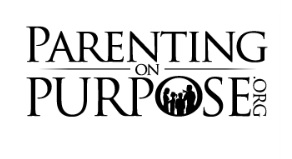
Understanding “Thank You” is one of the most missing elements in our culture. “Thank you” is also one of the most important lessons a parent should teach a child.
Post Katrina a group of displaced, homeless people in Louisiana had been given “homes,” albeit trailers, to live in for the past year (emphasis on the word “given”). They had also received food supplies. In any other culture, they would be left to fend for themselves. Praise God America is a country that has a plan. Even after all the help they had received, they wanted to file suit against the government. They believe each of them should be given a check for $40,000 or more. Therefore, they have come to believe they deserve to have a home purchased for them. Initially they were grateful, then became entitled.
A grateful heart is happy and sees hope in the future. An entitled heart can never get enough to stay happy. Ingratitude fosters an insatiable appetite for more rather than an attitude of fulfillment.
One of the most significant realities we need to teach our children is gratitude, and teaching that thought process will be a battle. We live in a culture that breeds greed. Our culture must breed greed in order to keep our economy thriving. Marketers and advertisers make a living pushing our greed button. I already have enough… in fact much more than enough… but it’s the advertiser’s job to make me think I really deserve, no need, their product.
Add to the culture’s feeding of our self-centered greed button the fact that children are born the center of their own universe. It is a parent’s responsibility to train the child so that he or she will overcome selfishness and greed. That all begins by developing a thankful heart in the life of your child.
While under house arrest in Rome, the apostle Paul said, “I learned to be content….” The emphasis must be on the word “learned.” Contentment does not come naturally. It is taught before it can be learned.
Example
The first parenting step is to set the Example of gratitude. Ask yourself the following question: “Do my children here me say I wish I had this or that item?” Do the children see me spending my free time pouring over things I don’t have? In a culture where a major sport has become shopping, or comparing ourselves to the seemly perfect social media of others, it is hard for children to grow up believing their mom or dad is content, let alone thankful. Set an example of talking about how blessed we are to even have a place to live.
 Expression
Expression
The second step is Expression. Teach the child to express the phrase, “thank you.” It will initially come from their mouths as emotionless words but that’s the beginning.
Expression goes from words to actions. When I become truly grateful for what God has given me, I express it with more than lip service. I express it with actions of generosity. There is no mistaking the thought behind the title of this month’s holiday. Thanksgiving needs to be just what it says, a day spent talking about the fact that we have so much to be thankful for, and we express it by giving to others.
In our household, we have a Thanksgiving tradition of sharing our “thankfulness” by placing a large poster board on the refrigerator door, along with a pen. Each family member writes things on the poster board that they are thankful for during the week leading up to Thanksgiving. Then one of us reads the list during Thanksgiving dinner. This always prompts additional spontaneous statements of gratitude from our guests. Sometimes this time of sharing has become very emotional.
Gratitude is a great introduction into the next season: Christmas. It helps us spend time talking about more than “what do you want to get for Christmas?” We begin thinking and talking about, “Who do we want to help or give to this Christmas?”
Encouragement
The final “E” in this training process is Encouragement. As we spend time talking about how we will each express our gratitude, it is the role of the parent to congratulate the children on their maturity. “I want you to know that I am very proud to be a part of a family that is mature enough to want to give rather than always just get. Let’s go into Christmas knowing that we have already gotten the greatest Christmas gift we could possibly have – the precious gift of Jesus!”
How will this training impact your child when he or she becomes an adult? And that is the goal isn’t it? To raise a health, godly adult, who can fight the cultural distractions to reach the plans God has for them.
The child that grows up knowing how to be thankful to the point of giving is a content child. This person is also a marriageable child. He or she will not wait impatiently for their spouse to meet their needs. Instead their thankful heart will foster giving hands to meet the needs of their spouse.
This is called Parenting On Purpose, rather than parenting by culture. When our children are adults, we want to be able to say we’re glad we did this, rather than we wish we had!
 Visit parentingonpurpose.org for more advice from Dr. Bob Barnes and Torrey Roberts. For more articles by Dr. Bob Barnes and Torrey Roberts, visit goodnewsfl.org/author/dr-bob-barnes-and-torrey-roberts/
Visit parentingonpurpose.org for more advice from Dr. Bob Barnes and Torrey Roberts. For more articles by Dr. Bob Barnes and Torrey Roberts, visit goodnewsfl.org/author/dr-bob-barnes-and-torrey-roberts/

Comments